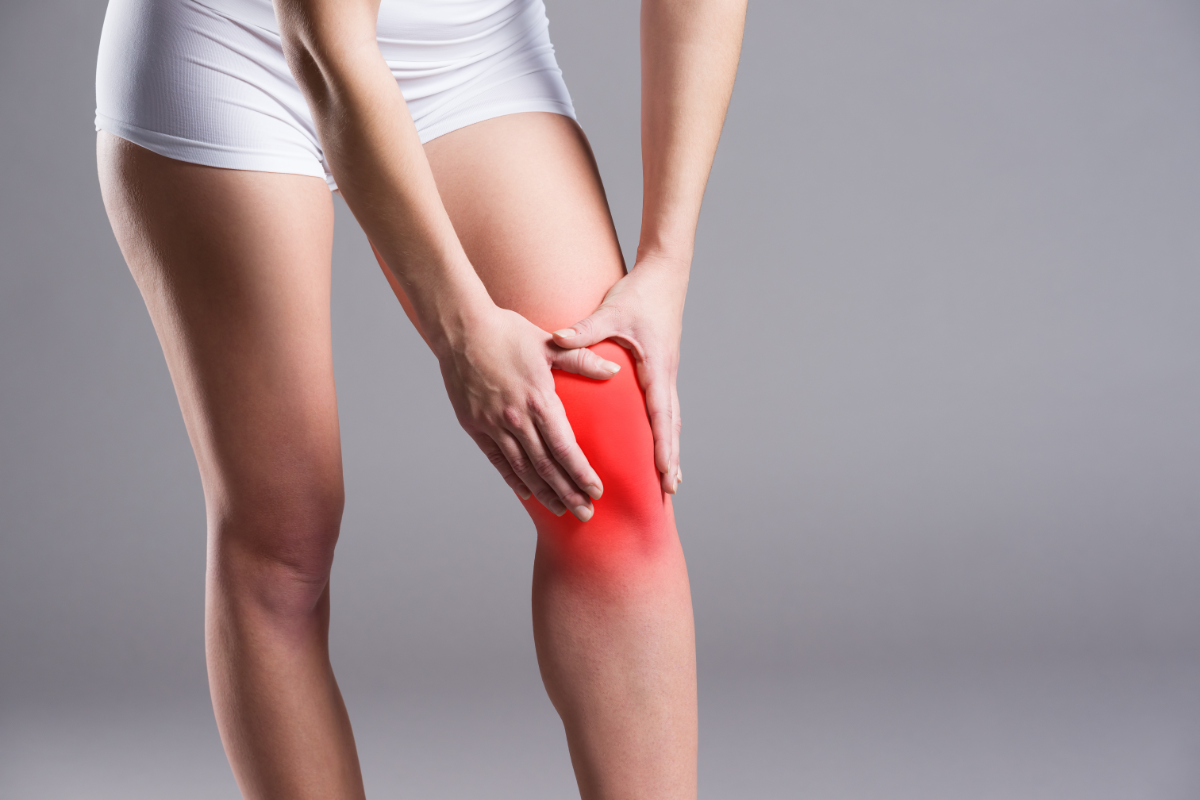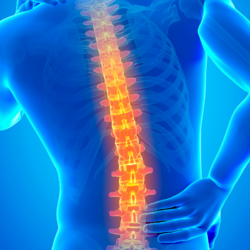Joint pain can have a significant impact on our quality of life. Whether it’s osteoarthritis, arthritis, tendonitis or other forms of joint pain, it can make everyday tasks difficult. But have you ever thought that your pain could be linked to your gut microbiota?
What is joint pain?
Joint pain refers to discomfort, pain or inflammation originating from any part of a joint – including ligaments, tendons, bones and muscles.
The main causes of joint pain
Joint pain can result from a variety of causes, such as inflammatory disease, traumatic injury or age-related wear and tear.
Understanding the intestinal microbiota
To understand how our gut microbiota can influence joint health, it is essential to understand what the gut microbiota is and how it works.
What is the gut microbiota?
The intestinal microbiota is a dynamic community of billions of micro-organisms, including bacteria, viruses fungi and other micro-organisms that reside in our gastrointestinal tract. This micro-ecosystem living inside us is in constant interaction with our body and plays an essential role in our overall health.
The functions of the intestinal microbiota
The intestinal microbiota has several vital functions. It helps to digest food, produce essential vitamins and defend against pathogens. It also plays an important role in modulating the immune system and in communication between the intestine and the brain, known as the intestine-brain axis.
The impact of the microbiota on general health
A growing body of research suggests that the gut microbiota can have an impact far beyond our digestive system. It has been linked to a variety of conditions, including metabolic diseases such as obesity and type 2 diabetes, cardiovascular disease, and even neurological disorders such as Parkinson’s disease and depression.
Link between intestinal microbiota and joint pain
In the next part of this article, we’re going to delve into the fascinating world of our gut microbiota and its influence on our health. It has now been proven that this vast ecosystem of micro-organisms that populates our gut plays a decisive role in maintaining our general well-being. However, we are going to explore a surprising and increasingly well-documented link: the relationship between gut microbiota and joint pain.
Research into gut microbiota and arthritis
In the context of joint pain, recent studies have begun to explore the link between the gut microbiota and arthritis. Several studies have shown that people with rheumatoid arthritis, an autoimmune disease that causes inflammation of the joints, have a different intestinal microbiota to healthy people. More specifically, their microbiota is generally unbalanced, with a proliferation of certain pro-inflammatory bacteria and a reduction in anti-inflammatory bacteria.
These findings suggest that the gut microbiota may play a role in the development and progression of arthritis and other autoimmune diseases. However, further research is needed to fully understand this relationship and determine how we might be able to manipulate the gut microbiota to treat or prevent these conditions.
How the gut microbiota can influence joint health
The intestinal microbiota, that incredibly rich and complex universe that lives inside us, has far more impact on our health than we ever imagined. Among its many influences, it just so happens that it can play a considerable role in the health of our joints.
The relationship between the intestinal microbiota and joint health rests mainly on two pillars: modulation of the immune system and provocation of chronic inflammation.
Modulating the immune system is one of the key roles of our microbiota. It has the capacity to educate and regulate our immune system. By establishing constant communication with immune cells, it helps to maintain a delicate balance between defending the body against pathogens and preventing excessive immune responses that could lead to autoimmune diseases. When this balance is disturbed, it can lead to an inappropriate immune response against our own tissues, including those in the joints, causing pain and inflammation.
The gut microbiota can also trigger chronic inflammation. Certain intestinal bacteria have the ability to produce compounds that cause inflammation. If these bacteria proliferate, they can cause an overproduction of these pro-inflammatory compounds, leading to chronic inflammation that can affect various organs, including the joints.
As a result, an imbalance in the gut microbiota – or dysbiosis – can lead to joint problems. It is therefore crucial to maintain a healthy intestinal microbiota to prevent or alleviate joint problems. A balanced diet rich in fibre and probiotics, as well as a healthy lifestyle, are essential to nourish and support our intestinal microbiota.
How can we modify our microbiota to improve joint health?
Diet plays a vital role in the composition of the intestinal microbiota. So changing your diet could be one way of improving your joint health.
Diet and the intestinal microbiota
Your gut microbiota is strongly influenced by what you eat. Fibre-rich foods such as fruit, vegetables, pulses and wholegrain cereals can contribute to a healthy gut flora. These foods are fermented by intestinal bacteria to produce short-chain fatty acids, which have anti-inflammatory effects and can help ease joint pain.
Conversely, a diet rich in saturated fats and sugars can upset the balance of the intestinal microbiota. This encourages the growth of bacteria that can contribute to inflammation and joint pain.
Probiotics for joint health
Probiotics are live micro-organisms which, when consumed in adequate quantities, can offer health benefits. They are mainly found in the form of food supplements or in fermented foods such as yoghurt, sauerkraut, kimchi and kefir.
Probiotics can help rebalance your intestinal microbiota. They can replace harmful bacteria and reduce inflammation in the body. Some research suggests that probiotics may help reduce pain and inflammation in people with joint pain. However, further studies are needed to confirm these results.
Prebiotics for joint health
Prebiotics, on the other hand, are types of dietary fibre that nourish the good bacteria in your gut. They are found in many foods, such as bananas, onions, garlic, leeks, asparagus and whole grains.
By nourishing the good bacteria, prebiotics help maintain a healthy gut microbiota. This can help reduce inflammation and improve joint health. Some studies have shown that taking prebiotics can reduce levels of certain inflammatory markers associated with joint pain. Finally, it’s important to note that changing your diet to improve your gut microbiota can take time and results may vary from person to person. It is always advisable to consult a healthcare professional before starting any new diet or supplement programme.
Food supplements for joint health
Research continues to demonstrate the importance of the gut microbiota to our overall health. This has led to the emergence of innovative products that aim to improve our microbiota, and therefore our health. Arthélio® is one such product, focusing specifically on joint health.
What is Arthélio®?
Ultimately, Arthélio® is an innovative food supplement designed to help restore balance and mobility to joints. It is the first postbiotic innovation in the field of joint mobility. This dietary supplement aims to reduce joint pain and improve the normal functioning of cartilage. This can lead to an improvement in everyday movements.
How does this dietary supplement for joint health work?
In fact, Arthélio® uses a two-pronged approach to support joint health. Firstly, it contains vitamin C, which contributes to the normal formation of collagen. This ensures the normal function of joint cartilage. This is essential because collagen is a major component of cartilage, providing the necessary structure and support for our joints.
Arthélio® also uses CBi0703, a lysate of Bifidobacterium longum. This postbiotic has a specific action on the micro-inflammation of articular cartilage, reducing the accumulation of pro-inflammatory molecules such as lipopolysaccharides (LPS).
Efficacy
According to studies, Arthélio® is effective within three months, with a reduction in the intensity of pain and a reduction in the frequency, duration and intensity of attacks. This can help to improve the quality of life of people suffering from joint pain, enabling them to carry out their daily activities more easily.
FAQ
- What is the intestinal microbiota?
- The intestinal microbiota are all the micro-organisms living in our intestine.
- How can intestinal microbiota affect joint pain?
- It can influence joint health by modulating the immune system and causing inflammation.
- What are probiotics?
- Probiotics are beneficial bacteria that we can consume through certain foods or supplements.
- What are prebiotics?
- Prebiotics are dietary fibres that nourish the good bacteria in our intestines.
- How can I improve my gut microbiota?
- You can improve your microbiota by eating a diet rich in fibre, fruit, vegetables and fermented foods.







